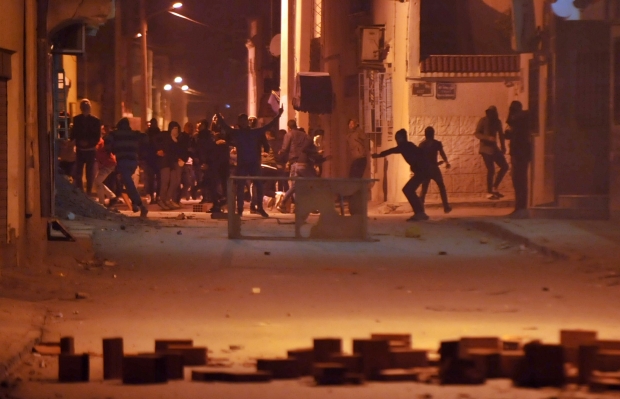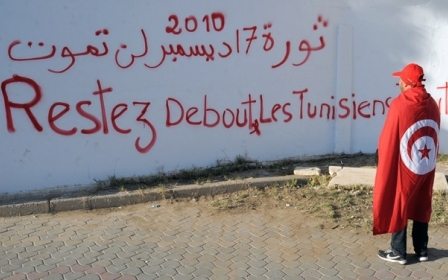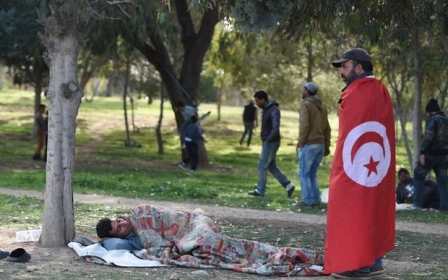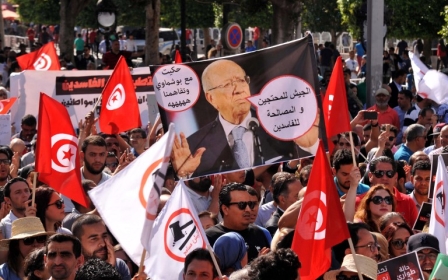Tunisia protests: Another heavy dose of austerity
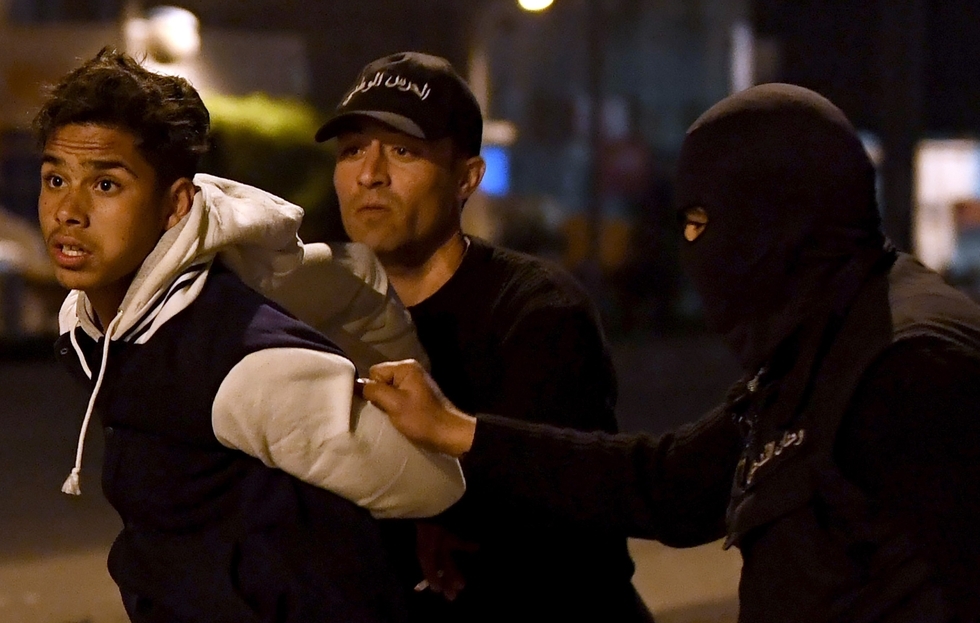
There is something about winter in Tunisia. In January of 1984, bread riots rocked the country, unsettling the Bourguiba government. In January 2011, a revolution swept away the then president Zine el-Abidine Ben Ali, his successor.
In the past few days, demonstrations have again erupted across Tunisia, particularly in its northwest. While protests have been overwhelmingly peaceful, some have escalated into confrontations with security forces. More than 200 people have been arrested, and one has died.
The primary demand
Protesters are rallying against rapidly rising prices, high unemployment and the austerity policies of the Tunisian government. The primary demand is the revision of the new finance law, which came into power on 1 January, and is primarily held responsible for the recent dramatic increase in prices.
A group of young Tunisians launched the campaign فاش_نستناو "what are we waiting for". The group did not call for protests during the past few days, however, they are calling for a new protest on Friday in Tunis.
The law is an unfortunate climax of the economic policies that have shaped Tunisia's post-revolutionary era. Largely driven by the demands of the International Monetary Fund, of which it has historically been a dutiful student, Tunisia's government has been pursuing a strategy of economic reform geared towards cutting government expenditure and devaluing its currency.
Being a net food importer, Tunisia's weak dinar has put additional pressure on living costs, exacerbating the already high inflation.
By 2017, its consumer price index had risen by a third since the revolution in 2011, food prices by almost 50 percent. Caught between powerful unions and international lenders, the government raised public sector wages, but largely stopped hiring.
This has left many young Tunisians struggling to find employment that can keep up with inflation: even today, more than 60 percent of working men and 83 percent of working women are part of the country's growing informal economy.
The controversial finance law
On top of all this came the finance law. Announced with the intention of reducing the budget deficit to below five percent of GPD, it is, among other oddities, another heavy dose of austerity. It included a one percent hike of VAT, alongside additional tax increases of 10 percent for multiple sectors, including car dealerships and supermarkets, and adds an additional social security contribution.
And so, since the new year, prices have spiked once again, with gasoline and phone costs increasing alongside common household goods. "Don't talk to me about the prices, I’m not the government," read a sign in a shopkeeper's window, "Rise up!"
Not all the goals of the government’s economic programme are in themselves bad ideas. Reforming the public sector is an important issue, as is addressing the position of the dinar.
However, pushing through painful reforms without any regard for their distributional consequences not only risks doubling down on deep and harmful inequalities and segmentations within Tunisian society, it asks additional sacrifices of people who have little more to give.
It is, fundamentally, unsustainable. The government's rhetoric that this is a temporary period of hardship, as well as the prime minister's assurance that 2018 would be the last hard year for Tunisia, are rarely believed, both due to Tunisia's debt service obligations in the coming years, and because Tunisians have increasingly stopped believing their government.
Possible escalation?
Where do we go from here? The situation seems set for escalation. The government's immediate reaction to the protests has been largely dismissive, highlighting occurrences of violence, and encouraging security forces to crack down on protests.
A fundamental change in policy is unlikely unless international lenders were to provide Tunisia with significant room for manoeuvre. Even if the finance law were to be reversed, the dinar is still falling, and the labour market has not even begun to recover from the dip in public sector hiring.
The current crisis exposes the weakness of Tunisia's consensus-driven political landscape. The grand coalition politics of Nidaa Tounes, Ennahda and a range of smaller parties has been viewed with some satisfaction by international observers, seeming to provide an ideal vehicle to pacify ideological cleavages within the country.
However, underneath the consensus rhetoric it has also generated near hegemonic support for austerity programmes within Tunisia's political system, thereby risking opening up a cleavage between its people and its government.
Avoiding this will require a credible champion of a different kind of politics within the domestic party landscape. But it will also take a serious change of course by the international community.
If this doesn't happen, previous Tunisian January protests provide perspectives. In 1984, the protests were brutally suppressed, with over 100 people killed, deeply damaging the legitimacy of Bourguiba's government.
In 2011, winter in Tunisia was followed by spring across the region. And after all, Tunisia is not the only country in North Africa today with a population struggling under rising prices and austerity politics. The hashtag "what are we waiting for" is pretty universally applicable.
- Max Gallien is a PhD candidate in international development at the London School of Economics, specialising in the political economy of North Africa. He has conducted extensive research on informal economies particularly in southern Tunisia and northern Morocco. He holds an MPhil in modern Middle Eastern studies from the University of Oxford, and was a scholar in residence at Al-Akhawayn University in Morocco.
The views expressed in this article belong to the author and do not necessarily reflect the editorial policy of Middle East Eye.
Photo: Security forces detain a protester in the Ettadhamen on the outskirts of Tunis on 10 January (AFP)
New MEE newsletter: Jerusalem Dispatch
Sign up to get the latest insights and analysis on Israel-Palestine, alongside Turkey Unpacked and other MEE newsletters
Middle East Eye delivers independent and unrivalled coverage and analysis of the Middle East, North Africa and beyond. To learn more about republishing this content and the associated fees, please fill out this form. More about MEE can be found here.



